Category: Leadership
-
![[Trinity Japan] Lord Martin Rees, Astronomer Royal in discussion with Trinity in Japan](https://www.fasol.com/b/wp-content/uploads/2020/08/Screen-Shot-2020-08-03-at-16.56.52.png)
[Trinity Japan] Lord Martin Rees, Astronomer Royal in discussion with Trinity in Japan
Lord Martin Rees in discussion with Trinity in Japan on 31 July 2020. Topics discussed include the recent Nobel Prize for Didier Queloz, existential risks to humanity, exoplanets and extraterrestrial life, the possibility and conditions on planet Mars and on other planets and exoplanets, and experimental programs to detect extraterrestrial life, and the current situation…
-
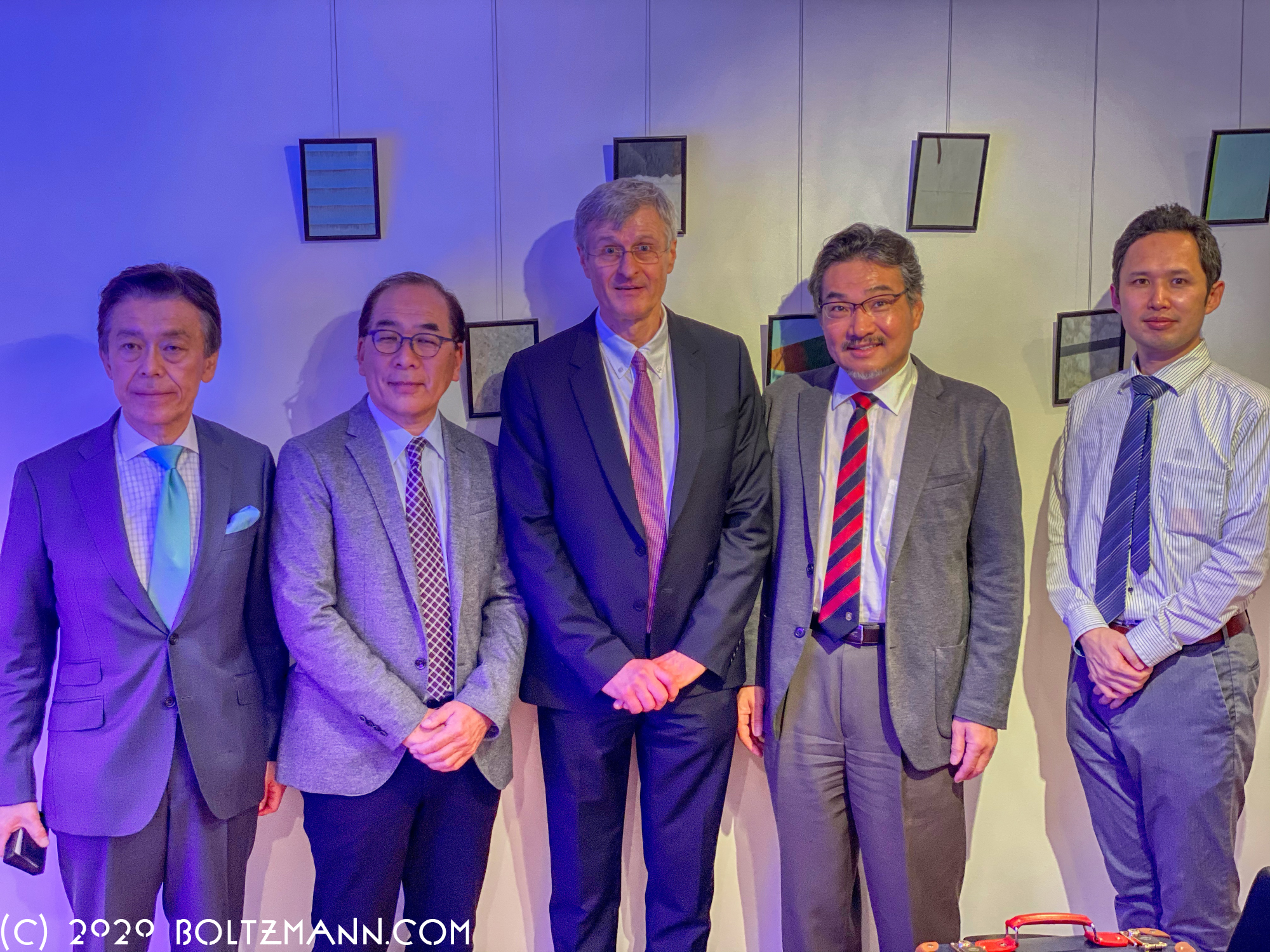
12th Ludwig Boltzmann Forum Tokyo 2020
Energy. Entropy. Leadership. 12th Ludwig Boltzmann Forum, 20 February 2020 at the Embassy of Austria, Tokyo. Gerhard Fasol, Chair and Producer. Program Welcome by the Ambassador of Austria, Hubert Heiss. Gerhard Fasol, CEO and Founder, Eurotechnology Japan KK, Guest-Professor Kyushu University, former faculty Cambridge University and Tokyo University, Past-Fellow Trinity College Cambridge “Today’s agenda. Entropy,…
-
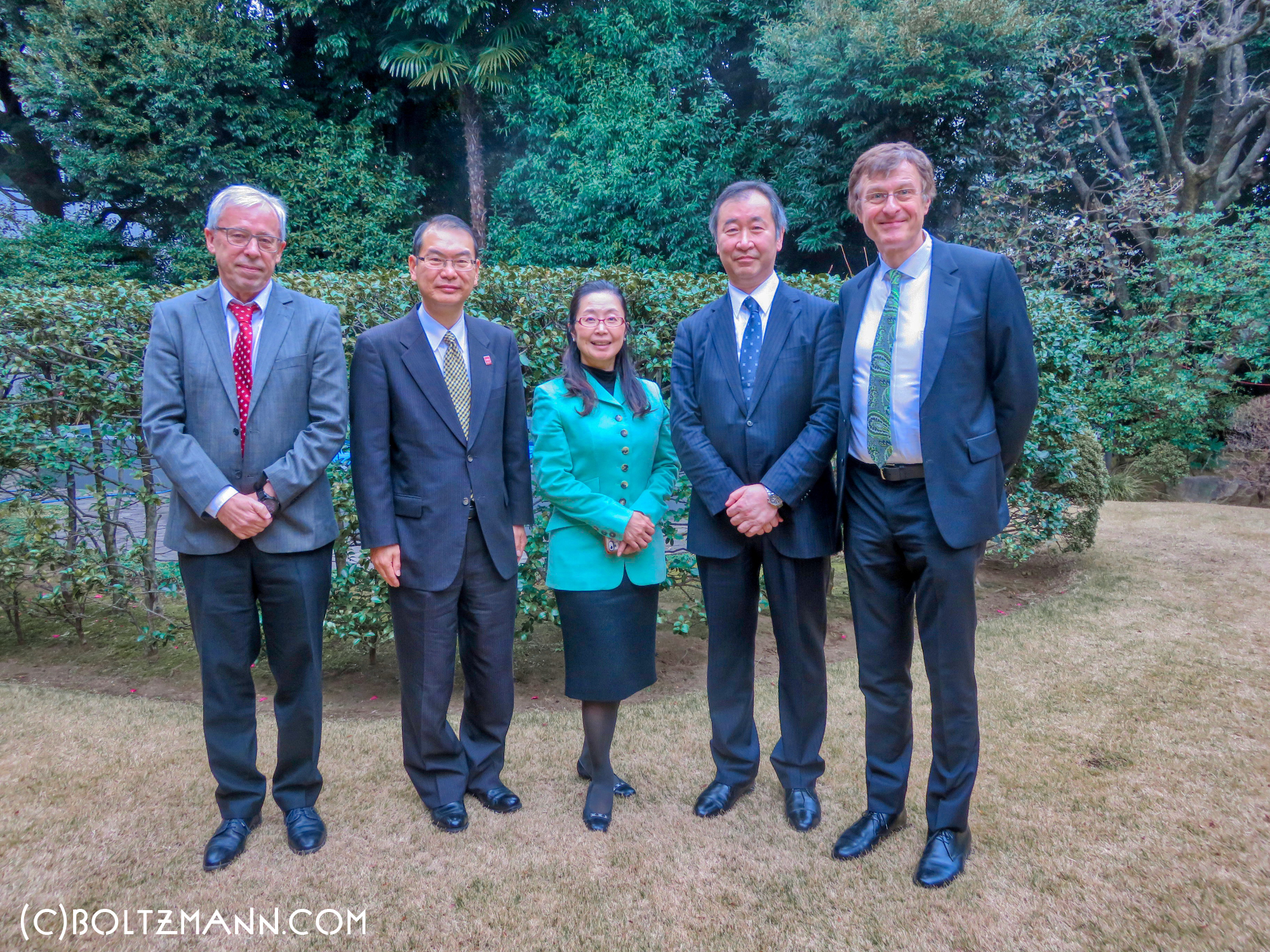
11th Ludwig Boltzmann Forum Tokyo 2019
Energy. Entropy. Leadership. 11th Ludwig Boltzmann Forum, 20 February 2019 at the Embassy of Austria, Tokyo. Gerhard Fasol, Chair Program Welcome by the Ambassador of Austria, Hubert Heiss. Gerhard Fasol, CEO and Founder Eurotechnology Japan K, Guest-Professor Kyushu University, former faculty Cambridge University and Tokyo University, Past-Fellow Trinity College Cambridge “Today’s agenda. Entropy, information and…
-
Corporate Governance Reforms in Japan, Swiss-Japanese Chamber of Commerce in Geneva
Gerhard Fasol: Corporate Governance Reforms: How the Way Japanese Corporations Take Decisions is Changing SJCC Swiss-Japanese Chamber of Commerce Friday 12 October 2018, 18:30-19:45, JETRO Office Geneva Prime Minister Abe’s corporate governance reforms are arguably one of the biggest success stories of his reform program to promote Japan’s economic growth. Japan’s Government in coordination with…
-

Corporate governance reforms: making Japanese corporations great again? Monday, May 28, 2018, 19:00-21:00 at CCIFJ
Corporate governance reforms: making Japanese corporations great again? Understanding how Japanese Boards of Directors function helps you close deals Monday, May 28, 2018, 19:00-21:00 at CCIFJ Stimulating Japanese companies’ growth is a key element of Prime Minister Abe’s economic growth policies. For companies to grow, management needs to be improved, Boards of Directors need to…
-
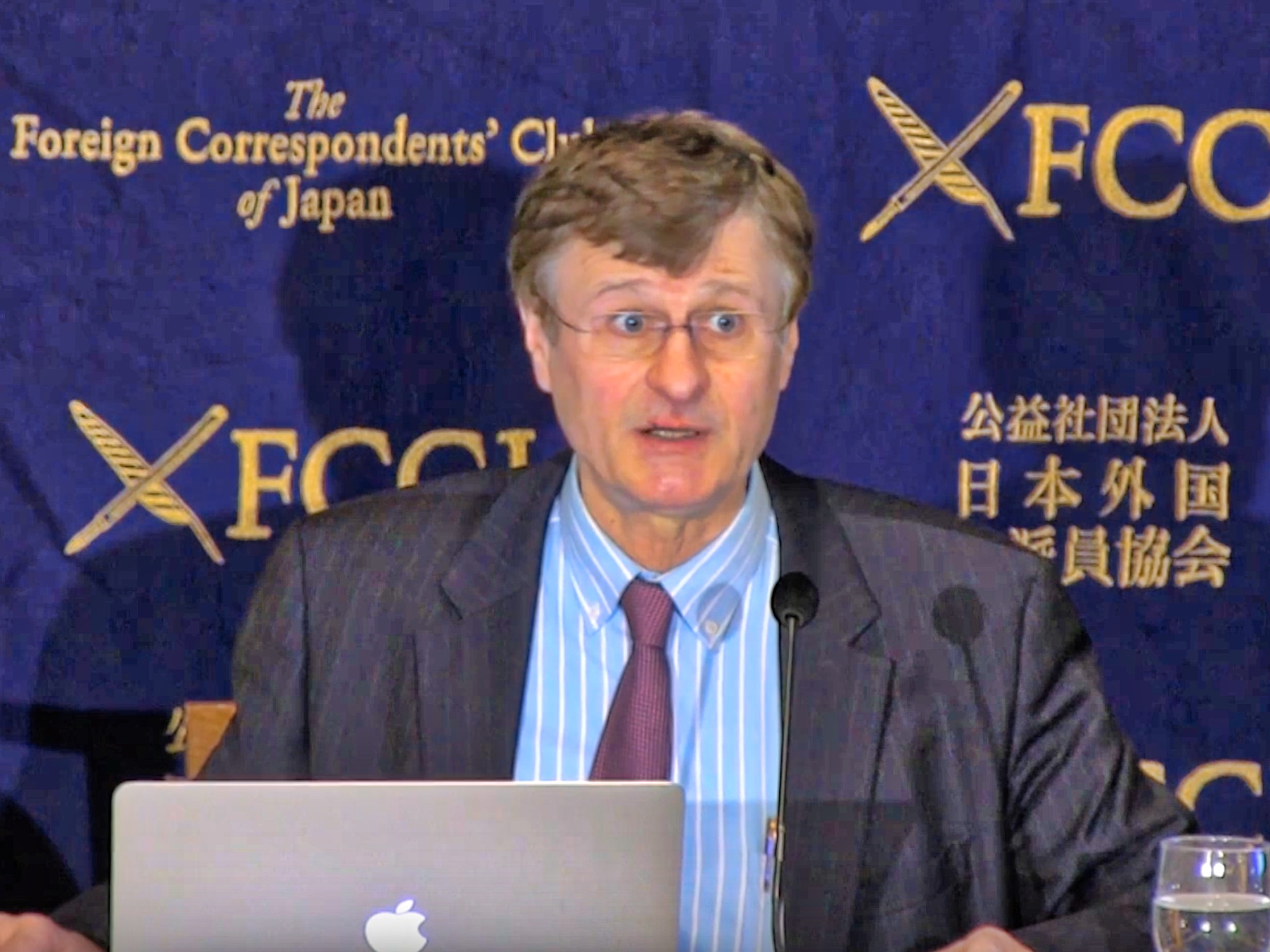
Corporate Governance Reforms in Japan, Gerhard Fasol at the Foreign Correspondents Club FCCJ 12 March 2018
Corporate Governance Reforms in Japan Monday, March 12, 2018, 12:00 – 13:30 at the Foreign Correspondents Club in Japan FCCJ While many Japanese corporations are still admired around the world, too many have for years suffered sluggish growth and low profitability. A string of corporate scandals and failures have shocked the pubic and corroded confidence…
-
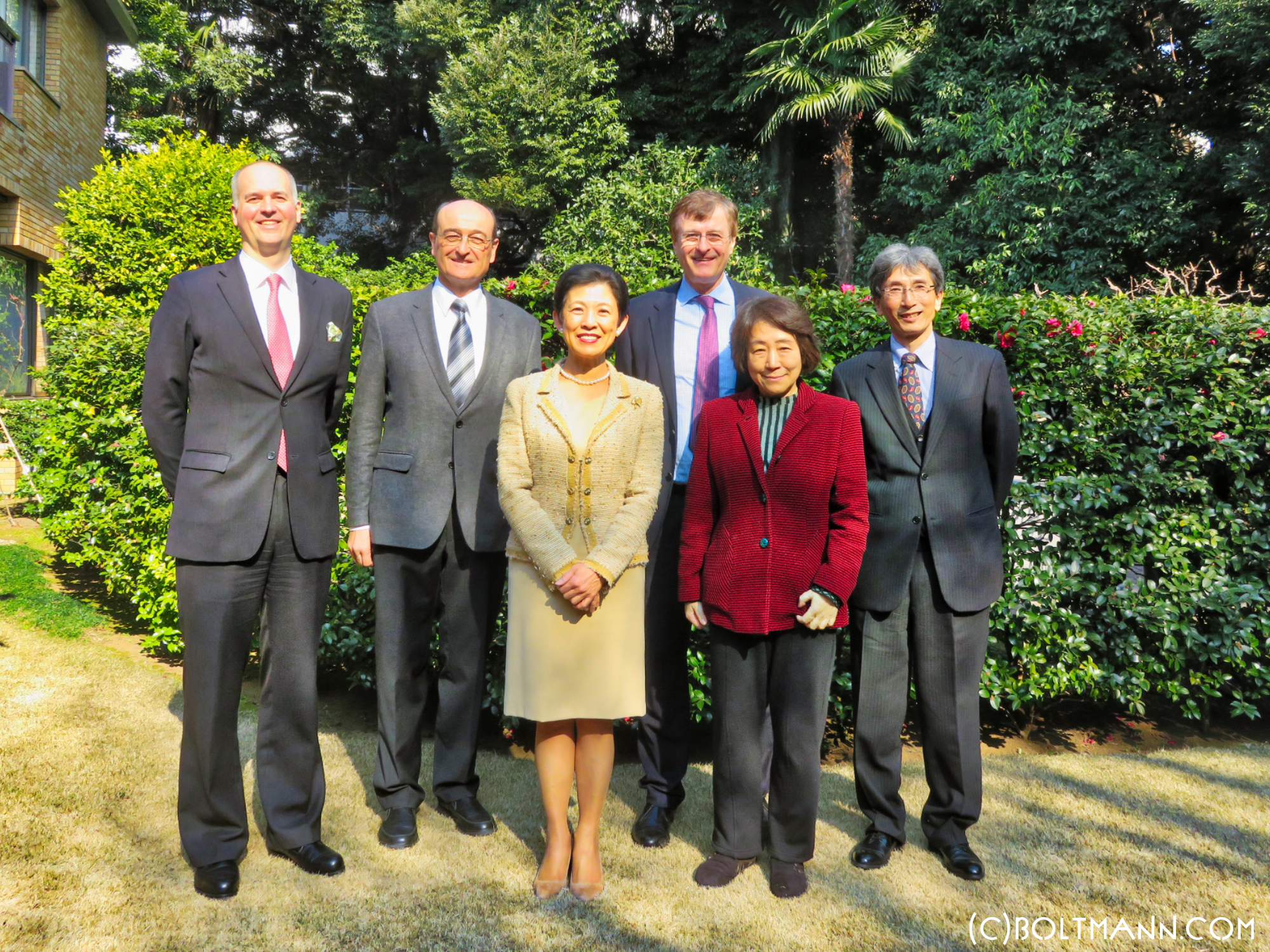
10th Ludwig Boltzmann Forum Tokyo 2018
Energy. Entropy. Leadership. 10th Ludwig Boltzmann Forum, 20 February 2018 at the Embassy of Austria in Tokyo Gerhard Fasol, Chair Program Welcome by the Ambassador of Austria, represented by Magister Konstantin Saupe (Embassy of Austria) Gerhard Fasol CEO Eurotechnology Japan KK, Board Director GMO Cloud KK, Guest-Professor Kyushu University, former faculty Cambridge University and Tokyo…
-

Japanese Corporate Governance – The Inside Story: Gerhard Fasol and Sir Stephen Gomersall
Gerhard Fasol and Sir Stephen Gomersall Daiwa Anglo-Japanese Foundation, London, Tuesday 16 January 2018, 6:00pm Topic: Japanese Corporate Governance – The Inside Story Speakers: Gerhard Fasol and Sir Stephen Gomersall Program: Tuesday 16 January 2018, 6:00pm – 7:00pm, Drinks reception from 7:00pm Location: 13/14 Cornwall Terrace, Outer Circle (entrance facing Regent’s Park), London NW1 4QP,…
-
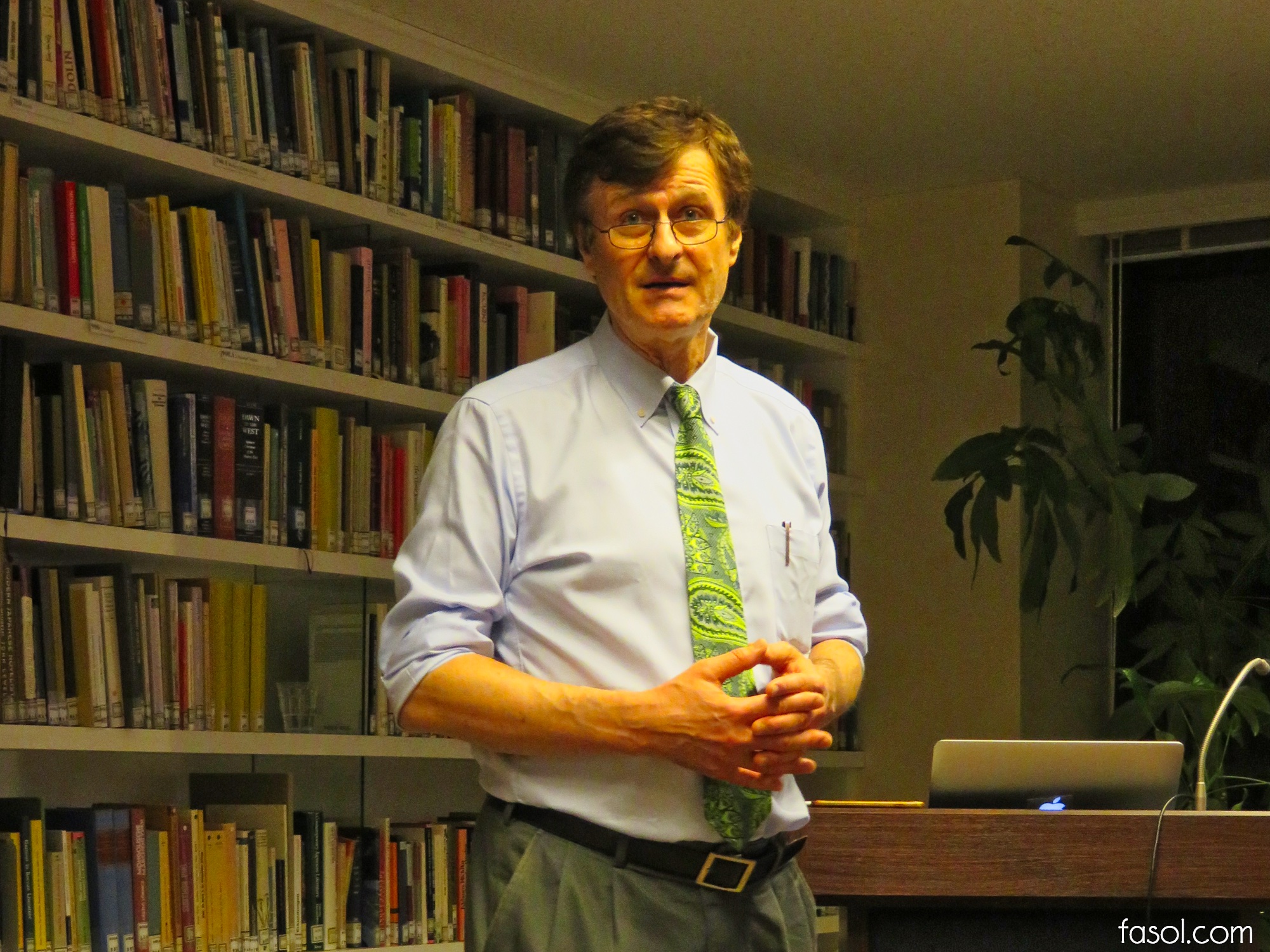
Corporate governance reforms in Japan
Corporate governance reforms are one of the key components of Abenomics, to improve economic growth in Japan Corporate governance reforms in Japan: talk at the OAG House in Tokyo, Wednesday 20 September 2017, 18:30-20:00 Wednesday 20 September 2017, 18:30-20:00 Talk: Gerhard Fasol: „Corporate Governance Reformen in Japan: Erfahrungen als Aufsichtsratsdirektor einer japanischen Firmengruppe“ Free of…
-
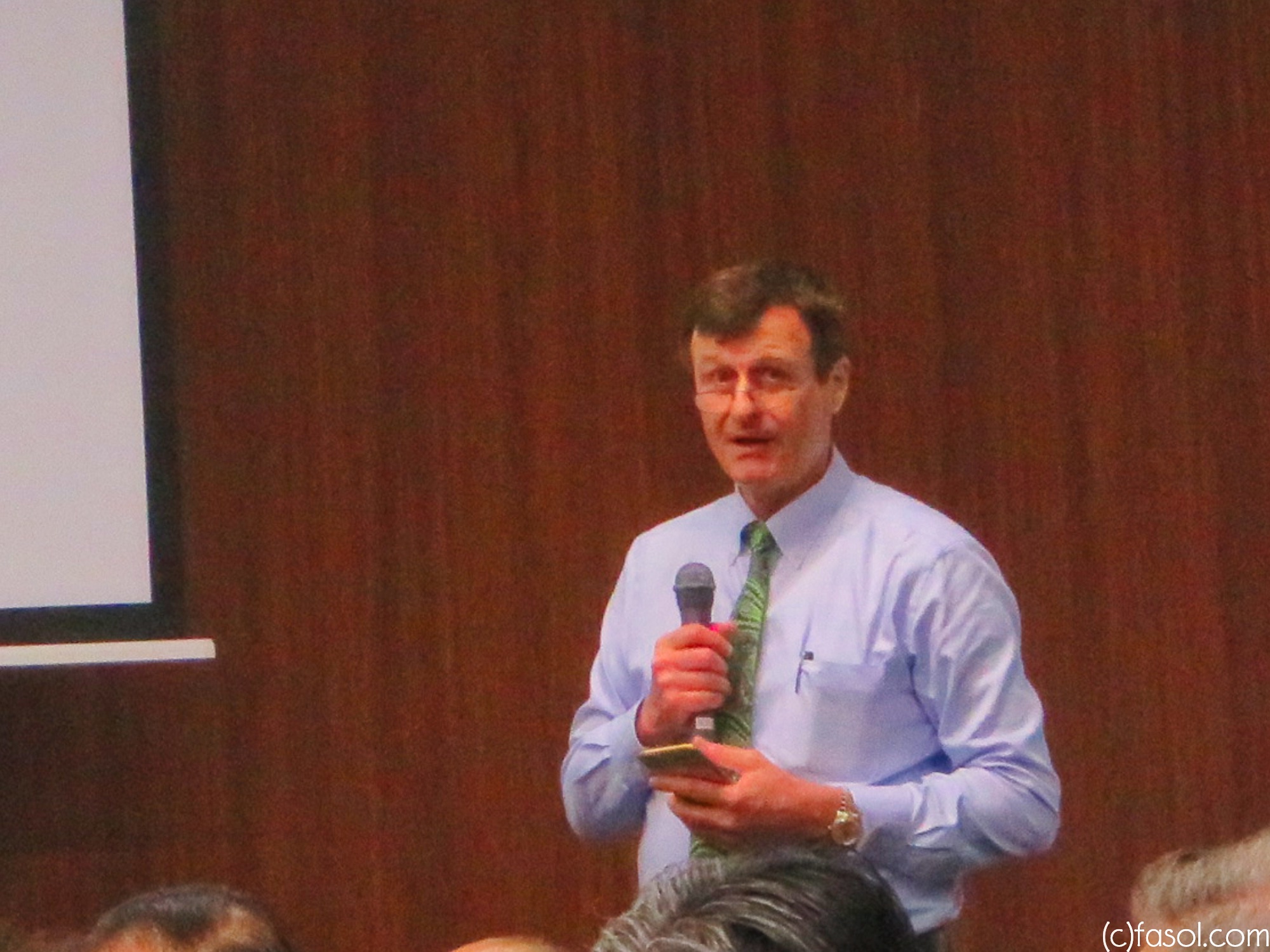
Future engineering education – a European view. Kyushu Society for Engineering Education.
日本語版 / Japanese version: http://www.fasol.com/j/2017/07/23/future-engineering-education-europe-view/ Gerhard Fasol: A European view on the future of engineering education in Kyushu Future engineering education. 4th Symposium of the Kyushu Society for Engineering Education. 11 July 2017 13:00-16:30 Kyushu Institute of Technology Future engineering education meeting program. 13:00-15:00 Yuichi Harada, Professor, Kyushu University: “Practical education using global innovation” Shingo…
